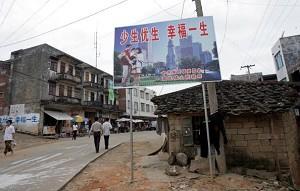BEIJING—China ’s criminals are getting younger, more innovative and more plentiful, state media said on Wednesday, citing experts who blamed increasing Internet access and the effects of the country’s “one-child policy.”
The number of juvenile criminals increased from 33,000 in 1998 to 80,000 this year, while two-thirds of the 4 million criminal cases handled annually by Chinese courts involved minors, the China Daily said.
“Crimes committed by youngsters have been causing a growing amount of severe social damage,” the paper quoted Liu Guiming, deputy secretary-general of the Chinese Society of Juvenile Delinquency Research, as saying.
“Offenders’ average ages have become younger and they are committing new types of crime and forming larger gangs. They even commit crimes without specific motives, often without forethought,” Liu said.
Liu blamed “the influence of broken families, the depletion of school education and incomplete social management,” for the rise, pointing to the growing number of children left at home by parents working in other cities.
China has a mobile population of about 150 million migrant workers who travel from poor rural regions to work in China’s more affluent eastern cities, often leaving their children in the care of relatives or friends.
Liu also said “the growing number of youths infatuated with unhealthy Web sites and campus violence” had become urgent social problems.
China’s police have said the majority of juvenile crime stems from the Internet, ranging from children stealing to finance online gaming addictions, to complex scams involving the theft of virtual property.
Authorities had added 150 new types of crimes last year to the law books, a rise of 22 percent, to cover new forms of online fraud and “gang-related Internet crimes,” the paper said.
China’s child-bearing restrictions were also blamed for creating a generation of single children forced to cope with the burden of family expectations alone amidst wrenching social change.
China has enforced rules to restrict family size since the 1970s, in the face of scarce land, water and energy resources. Rules vary but usually limit families to one child, or two in the countryside.
“With major social transformations under way, children nowadays, who are usually single children, endure more pressure and pain, even though they are called ‘emperors’ and ’empresses’ of the families, compared with when there were several children in each family in the past,” the paper quoted Shang Xiuyun, a Beijing judge specializing in juvenile crime, as saying.





